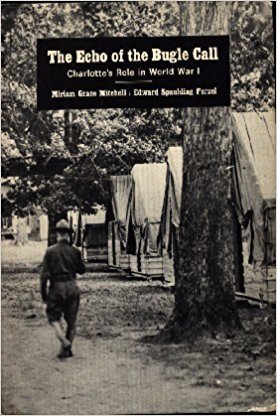Appendix C [1]
APPENDIX C
GENERAL WOOD'S SPEECH AT THE SELWYN HOTEL
I thank you for your greetings. I have had a delightful day of it here and I appreciate very much the courtesy which you have shown me this day as well as your hospitality. We have been very busily engaged for the last few months in examining a great many campsites. I wish we had to select a great many more campsites than are necessary. The people, all of them, have been hospitable and kind and have done everything possible to make our stay pleasant. They have impressed upon us always their convictions as to their place being the very best for the possible campsite. Some are good places and some are better.
We are trying to get the very best place for the soldiers to be trained. If it had been left to my own way of handling this, I think I should have put all the camps in the best locality, if that had been in one county. As it is, we are trying to make a fair distribution of them, with the view of giving the soldiers good soil, good water, transportation facilities and the like. Good transportation is necessary for good embarkation. This is quite a problem. Horses, supplies as well as men must be embarked in good shape.
We should have a short haul to the embarkment port. That is as consistent with good situation for camp as possible. Our men must get to the point of embarkation in good shape, for they will have a pretty hard time of it over on the other side and I feel that their welfare is the main thing in the placing of the campsites.
In selecting the sites we must consider the soil, whether sandy or muddy soil, the weather whether wet or dry, the system of controlling various kinds of vice generally, so that we must check up all these things, those that are good and what is bad, and select what seems the best possible camp. In some sections, we find good artesian wells with plenty of fresh water for the soldiers.
The best country we have found is that in the southern part of North Carolina and on through the northern part of Florida. Good weather, rather sandy soil, rather hot summers but splendid winters.
The Charlotte situation is nothing like I was led to believe it was. The soil has a large proportion of sand in it. When you come to put 35,000 men in it, the sticky mud must be considered. We must look at all these conditions and try to check up all the favorable things and all those that are against it, and then strike a balance.
An ideal camp is one with dry soil that drains quickly. This is why we tested out the soil here. All this is for the soldier for personally we do not give a "hump" who gets a camp, but we must play the game squarely and try to give them the best place possible.
This war and military training is going to give this country a great national spirit. All nationalities, Jews and Gentiles, will all be thrown together and each man will have to learn to cease to hate the certain traits in the other that he now does. He will only if the man does his duty and is patriotic.
Now as to labor conditions we in the south know practically nothing about the conditions that exist in our own country. Most of us in this section are native born Americans. Soon all will be blended into one people believing in national preparedness.
We do not realize what modern war is. You will not realize till you have had to train and send out each month sixty to seventy thousand men. Then you will realize that you are at war. Then you will realize that all our resources must be thrown together. War is here; war is an iron age.
If we do not want to fight, let us be strong, so well organized and so well prepared that no man will want to pick a fight with us.
Source: Charlotte Observer, July 6, 1917.

Mitchell, Miriam Grace and Perzel, Edward Spaulding. The Echo of the Bugle Call: Charlotte's Role in World War I. Charlotte, NC: Dowd House Preservation Committe, 1979